Today we start discovering how the Convention on Biological Diversity protects the traditional knowledge of indigenous peoples and local communities.
As defined by the CBD Secretariat:
“Traditional knowledge refers to the knowledge, innovations and practices of indigenous and local communities around the world. Developed from experience gained over the centuries and adapted to the local culture and environment, traditional knowledge is transmitted orally from generation to generation. It tends to be collectively owned and takes the form of stories, songs, folklore, proverbs, cultural values, beliefs, rituals, community laws, local language, and agricultural practices, including the development of plant species and animal breeds. Sometimes it is referred to as an oral traditional for it is practiced, sung, danced, painted, carved, chanted and performed down through millennia. Traditional knowledge is mainly of a practical nature, particularly in such fields as agriculture, fisheries, health, horticulture, forestry and environmental management in general”.
In recent years, the protection of traditional knowledge (TK) has become a growing concern in the international community. TK is valuable not only to indigenous people and local communities, but to modern industry and agriculture as well because many widely used products, such as plant-based medicines, health products and cosmetics, are derived from it.
For this reason, TK has been often acquired and employed by foreign entities, including foreign individuals, research academics and multinational companies. Its transnational use underscores the need to create legal frameworks to regulate such activities also through international mechanisms. In addition, there has been an international movement to promote and recognize the rights of indigenous peoples who hold most TK, also from the perspective of international human rights.
TK is generated collectively, it is elaborated, improved and preserved by indigenous peoples or local communities. Often transmitted orally from generation to generation, it is not typically codified within any modem system of documentation. The element of practicality is very much emphasised by indigenous peoples and women play a central role in maintaining TK. Furthermore, TK is linked to ecology due indigenous peoples’ relationship with nature, deriving from their own experiences based on personal education and contacts.
One of the greatest challenges in the international protection of TK is the diversity of indigenous group practices and organizations, since each group has unique customary practices and different relationships with the dominant culture and national government.
Often, policymakers and commentators maintain a limited conception of TK holders as tribal populations that exist wholly outside of the “cultural mainstream” of their countries and whose behaviors have barely changed over time, but TK holders are not a monolithic group with monolithic interests.
Sometimes TK has an important spiritual significance, and certain groups would oppose its commercialization under any circumstance, while other times other groups may want to enhance the commercial value of their knowledge.
Plus, policymakers often assume that knowledge is shared freely and that traditional communities are hostile to any conceptions of “property” or “ownership” but, while these communities may be less individualistic, many traditional societies have complex, local customary laws governing TK , similar to intellectual property.
TK also includes such controversial issues as bioprospecting, a term created to describe the activity of collecting and screening plant and other biological material for commercial purposes, new drugs, cosmetics and seeds. Although it may be argued that bioprospecting is beneficial for biodiversity, sometimes it is claimed it is equivalent to biopiracy, as it fails to compensate adequately indigenous and local communities providing the access to their resources. Patents and products developed on the basis of TK often breach intellectual property rights and constitute intellectual piracy.
There are two purposes for utilising intellectual property in the context of TK. The first (often referred to as “positive protection”) is concerned with ensuring that appropriate legal mechanisms are set to allow the original holders of TK to protect that knowledge. The second purpose (referred to as “defensive protection”) is to ensure that parties other than the traditional holder do not acquire without consent intellectual property over TK. So, while positive protection seeks to promote the rights of the traditional holder of the knowledge, negative protection seeks to guarantee against its violation and misuse.
Despite their great importance, the knowledge, innovations and practices of indigenous peoples and local communities are disappearing at an accelerating rate, and this decline is due in part to the annihilation of the populations that create and maintain the knowledge.
The CBD appears to be the first international agreement that obliges State parties to protect bio-related TK. The CBD has mandated the use of TK to comply with access and benefit- sharing devices.
Other important instruments, such as Rio Declaration and Agenda 21, elaborated important ideas regarding the protection of TK and, more in general, indigenous culture.
In the next post we will analyze the Rio Declaration and Agenda 21 and their references to TK. Stay tuned!
Credits:
- Kuei-Jung Ni, Traditional Knowledge and Global Lawmaking , 10 Nw. U. J. Int’l Hum. Rts. 85 2011-2012
- M. Fitzmaurice, The Dilemma of Traditional Knowledge: Indigenous Peoples and Traditional Knowledge, in 10 Int’l Comm. L. Rev. 255, 2008.
- D. Varadarajan, A Trade Secret Approach to Protecting Traditional Knowledge, in 36 Yale J. Int’l L. 371, 2011
- J.Amiott, Investigating the Convention on Biological Diversity’s protections for Traditional Knowledge, in 1 Mo. Envtl. L. & Pol’y Rev. 3, 2003-2004.
- D.French, Sustainable Development and Biological Diversity, in International Economic Law: Critical Concepts in Law, ed. by Asif H. Qureshi and Xuan Gao, Vol. V, Routledge, 2010.
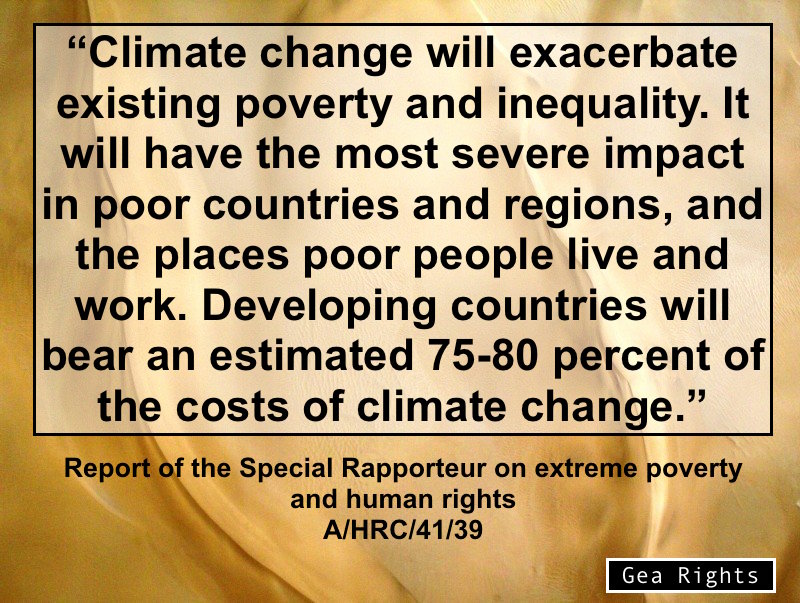
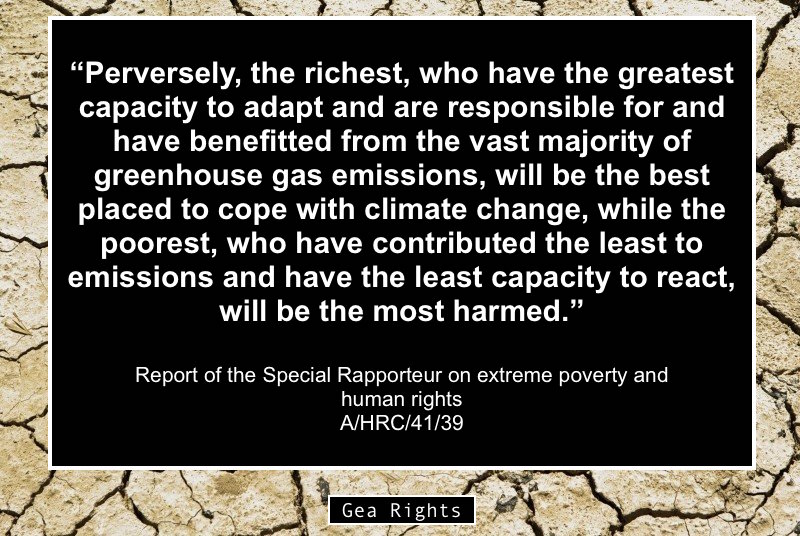
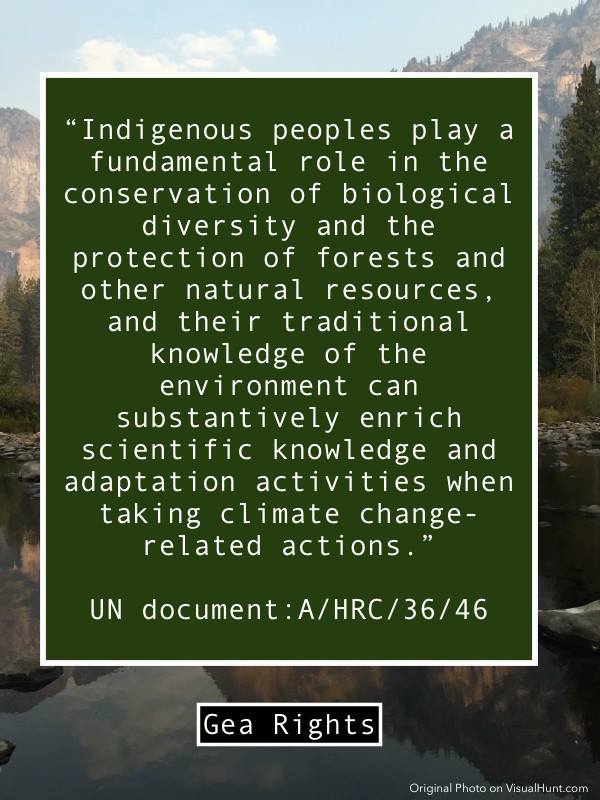
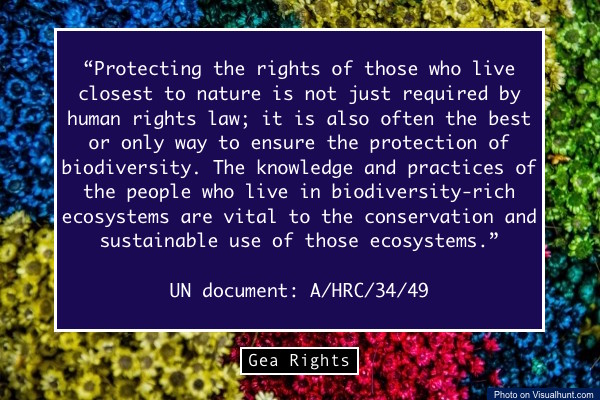
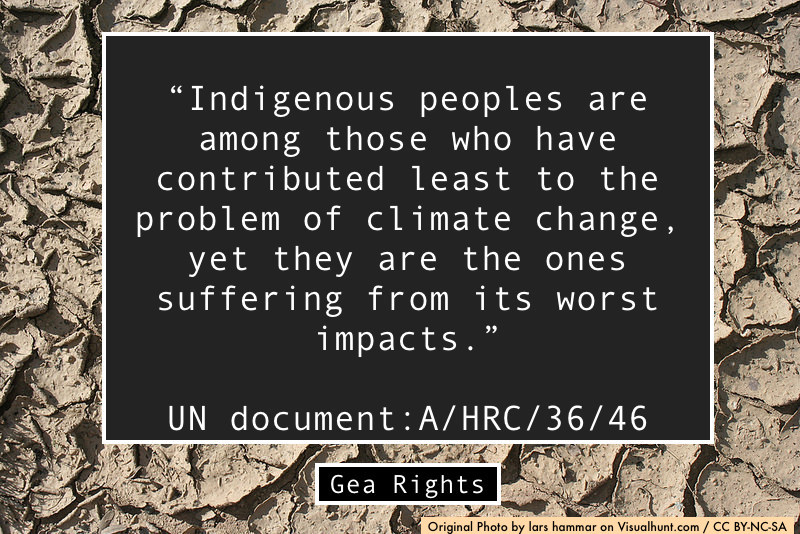
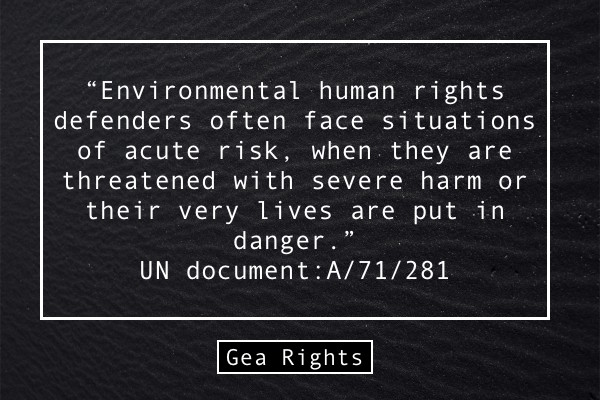
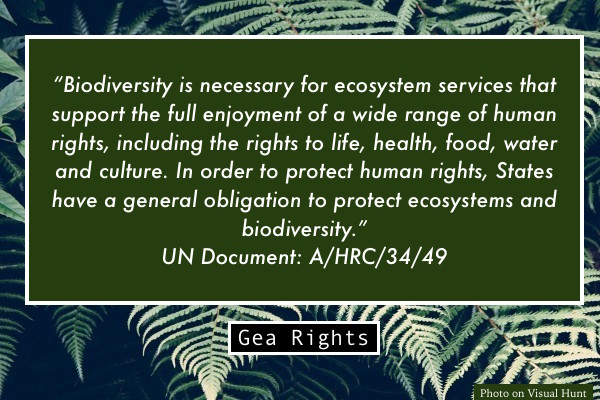
Leave a Reply